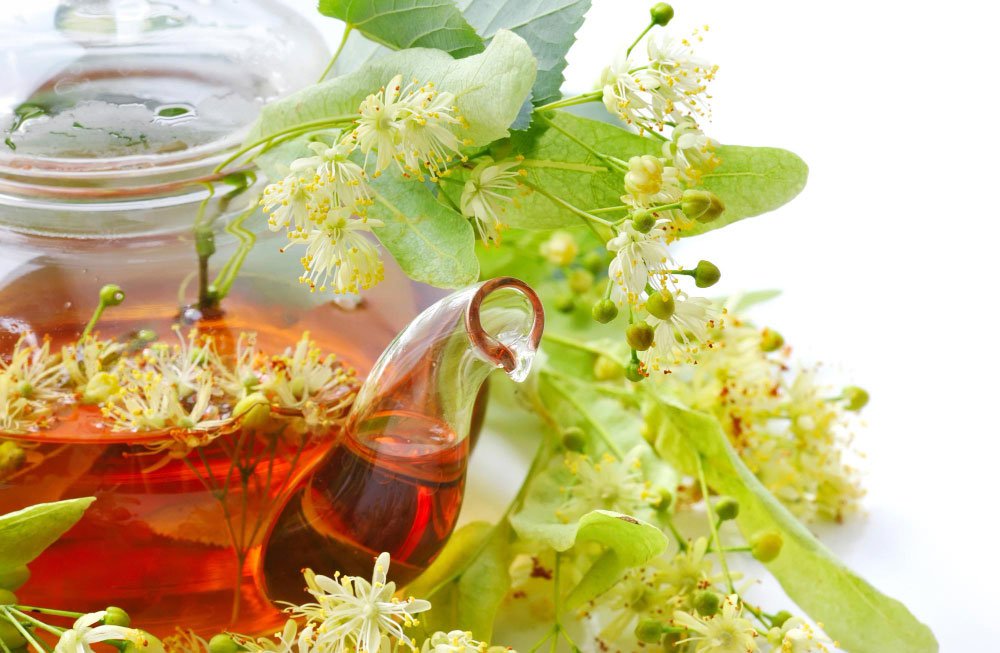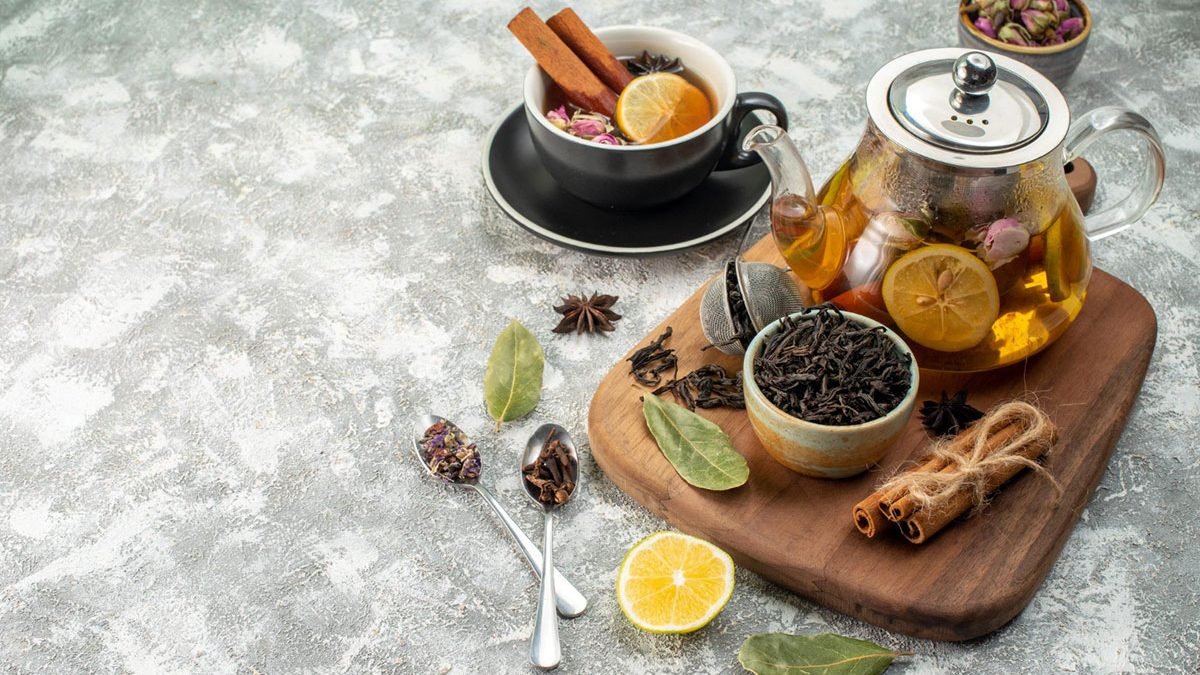The History Of Chamomile Tea And Its Health Benefits

Chamomile Tea
Chamomile tea is brewed using only the flower heads of the plant Camellia sinensis. Chamomile tea made with fresh chamomile flowers has fewer bitter undertones than those made with dry chamomile flowers or chamomile tea bags. Chamomile tea made with fresh chamomile flowers also has a higher antioxidant content. Chamomile tea is naturally caffeine-free.
The history of chamomile tea can be traced back to ancient Egypt, Greece, and Rome, where it was used for its medicinal properties. In the Middle Ages, chamomile was used as a flavoring for beer. In the modern era, chamomile tea is drunk for its health benefits, including promoting relaxation, improving sleep quality, and relieving stomach discomfort.
Here’s a step-by-step guide on how to make chamomile tea:
- Stepping 1-2 tablespoons of dried chamomile flowers in 8 ounces of boiling water for 5 minutes using a kitchen strainer.
- If you use fresh chamomile flowers, increase the amount to 3-4 tablespoons.
- After 5 minutes, discard the strainer with the chamomile flowers.
- Allow the tea to cool slightly, and then add honey or lemon to taste.
- Chamomile tea can be enjoyed hot or cold.
The History of Chamomile Tea
Chamomile tea is a type of herbal tea that is brewed using chamomile flowers. Chamomile tea has a long history dating back to ancient Egypt, Greece, and Rome. The following sections will cover the history of chamomile tea and its health benefits.
The Ancient Egyptians
Chamomile Tea’s Long History
Chamomile tea has a long and storied history, dating back to the ancient Egyptians. The Egyptians worshipped a goddess named Isis, who was said to have used chamomile to heal wounds. The plant was also used in embalming, as it was thought to have purifying properties.
Chamomile Tea in Europe
Chamomile tea became popular in Europe in the Middle Ages and was often used as a medicinal brew. It effectively treated various ailments, including anxiety, insomnia, and digestive problems. Chamomile tea continued to be popular throughout the centuries and is now enjoyed by people worldwide.
Is There Evidence to Support Chamomile Tea’s Health Claims?
Despite its long history, surprisingly little scientific evidence supports the health claims made about chamomile tea. However, some studies have shown that it may help treat certain conditions. For example, one study found that chamomile tea can help reduce anxiety symptoms.
This is thought to be because chamomile contains compounds that act on the same brain receptors as anti-anxiety medications. Chamomile tea is also sometimes used as a natural sleep aid, as it contains compounds that can promote relaxation. In addition, chamomile tea may help to relieve stomach discomfort and improve digestion.
More Research is Needed
While some evidence supports the health benefits of chamomile tea, more research is needed before any definitive conclusions can be drawn. If you’re considering drinking chamomile tea for health reasons, speaking with your doctor first is essential.
The Ancient Greeks
The ancient Greeks were among the first to discover the benefits of chamomile tea. They used it as a natural remedy for various ailments, including digestion problems and anxiety. Chamomile tea was even mentioned in some of the earliest medical texts.
The Greek physician Hippocrates, considered the father of modern medicine, wrote about the plant’s healing properties in the 4th century BC. In his work On the Sacred Disease, he recommended chamomile tea for patients suffering from inflammation. The Greek herbalist Dioscorides also wrote about the benefits of chamomile tea in his 1st-century text De Materia Medica. He recommended it as a treatment for wounds, ulcers, and bites.
The Romans
Chamomile tea has been around for centuries, and the history of Chamomile tea can be traced back to the ancient Romans. The Romans used chamomile for a variety of purposes, including as a perfume, incense, and even as a medicine. Roman soldiers often carried chamomile with them into battle, which was thought to bring courage and strength.
Chamomile was also used in religious ceremonies, and it was said to be a sacred herb that could ward off evil spirits. The Romans believed that chamomile had the power to cure a wide variety of ailments, including colds, headaches, stomach problems, and even insomnia.
Chamomile tea became very popular in Europe during the Middle Ages, and doctors often prescribed it for its medicinal properties. Chamomile continued to be used for its health benefits throughout the centuries and is still considered a healing herb today.
Chamomile in the Middle Ages
Chamomile was once one of the most popular herbs in the world. It was used for everything from healing wounds to calming nerves. It was even said to ward off evil spirits in the Middle Ages. Chamomile was so highly regarded that it was often used as a currency.
Today, chamomile is still used for its health benefits. It is a natural relaxant and can help treat anxiety and insomnia. Chamomile tea is also thought to be a digestive aid and can help treat stomach cramps and indigestion.
While there is no scientific evidence to support all of the health claims made about chamomile, there is some evidence that it does have some health benefits. Chamomile contains antioxidants that may help protect cells from damage. It also has anti-inflammatory properties that may help reduce swelling.
If you want to try chamomile tea, you can purchase it online or at most health food stores.
Chamomile Tea in the modern era
Chamomile tea is enjoying a resurgence in popularity in the modern era. This flavorful and aromatic tea has long been prized for its health benefits, which include promoting relaxation, aiding digestion, and relieving anxiety and stress. Chamomile tea is also a rich source of antioxidants, which can help protect against cell damage and boost the immune system.
While chamomile tea has been consumed for centuries, it is only in recent years that science has begun to confirm its many health benefits. A growing body of research indicates that chamomile tea can indeed promote relaxation, aid digestion, and relieve anxiety and stress. Chamomile tea is also a rich source of antioxidants, which can help protect against cell damage and boost the immune system.
So, if you’re looking for a delicious and healthy way to relax and improve your overall health, look no further than chamomile tea!

How to make Chamomile Tea
Brewing chamomile tea is simple. You can use either fresh or dried chamomile flowers. If using fresh flowers, pluck them from the stem just before brewing. If using dried flowers, use about 1 teaspoon per cup of water. Bring fresh or filtered water to a boil and pour over the chamomile. Steep for 3-5 minutes, then strain and enjoy. Chamomile tea can be enjoyed hot or cold.
The Health Benefits of Chamomile Tea
Chamomile tea is renowned for its calming effect and has been used to help insomnia and anxiety for centuries. Chamomile tea contains apigenin, an antioxidant that binds to specific receptors in the brain that have a calming effect. Chamomile tea also contains luteolin, another flavonoid that has anti-inflammatory and anti-anxiety effects. In addition to its calming effects, chamomile tea can also help with digestion and skin health.
Chamomile Tea for Insomnia
Chamomile Tea for Insomnia Chamomile tea is popular for those seeking a natural sleep aid. Chamomile tea contains apigenin, an antioxidant that binds to specific receptors in the brain that may promote sleepiness and reduce insomnia. Chamomile tea also has relaxing and calming properties that help ease the mind and body before bed.
Chamomile tea is a popular herbal tea made from the dried flowers of the Chamomile plant. Chamomile tea has a sweet, slightly fruity taste and is often used as a relaxant or sleep aid. Chamomile tea is naturally caffeine-free and contains no calories. Chamomile tea has been consumed for centuries and is believed to have originated in Egypt.
Chamomile tea was first introduced to Europe in the 16th century. Chamomile tea was first introduced to the United States in the 18th century. Chamomile tea is rich in antioxidants and has many health benefits. Chamomile tea can help treat insomnia, anxiety, indigestion, and headaches. Chamomile tea is also thought to boost immunity, improve cardiovascular health, and protect against cancer.
Chamomile Tea for Anxiety and Stress
Chamomile Tea for Anxiety and Stress: Chamomile tea has been traditionally used to help relieve anxiety and stress. Chamomile tea contains l-theanine, an amino acid that promotes relaxation and eases anxiety. Chamomile tea also contains apigenin, an antioxidant that binds to specific brain receptors that may help reduce stress.
Chamomile tea is a popular beverage that has been consumed for centuries, dating back to ancient Egypt. Chamomile tea is made from the dried flowers of the Chamomile plant and has long been used as a natural remedy for anxiety and stress. Chamomile tea is rich in antioxidants and has anti-inflammatory properties. Chamomile tea has also been shown to help reduce anxiety and improve sleep quality.
There are many ways to prepare chamomile tea, but the most common method is to steep the dried chamomile flowers in hot water for about 5 minutes. Chamomile tea can be enjoyed plain or with honey or lemon.
While many different brands of chamomile tea are available, it is also easy to make at home. Add 1-2 teaspoons of dried chamomile flowers to a cup of boiling water to make a cup of chamomile tea. Steep for 5 minutes, then remove the flowers and enjoy.
If you are looking for a natural way to reduce anxiety and improve sleep quality, try chamomile tea. Chamomile tea is safe for most people but check with your healthcare provider if you have any concerns.
Chamomile Tea for Digestion
Chamomile Tea for Digestion Many people find that chamomile tea aids digestion and helps to soothe an upset stomach. Chamomile tea can help to reduce stomach pain and discomfort. Chamomile tea may also help to reduce gas and bloating. Chamomile tea contains compounds that can help to relax the smooth muscles of the digestive tract.
Chamomile tea has long been a home remedy for indigestion and other digestive disorders. Chamomile tea is made from the dried flower heads of the chamomile plant and has a sweet, slightly bitter taste. Chamomile tea is caffeine-free and is thought to be soothing, making it a good choice for those with gastrointestinal issues.
There are two types of chamomile tea: German chamomile (Matricaria chamomilla) and Roman chamomile (Chamaemelum nobile). German chamomile is more commonly used in teas, while Roman chamomile is more often used in essential oils. Chamomile tea can be found in most grocery stores, health food stores, and online. For centuries, chamomile tea has been used to treat indigestion, gas, bloating, and other digestive issues.
Chamomile tea is thought to speed digestion and help the body absorb nutrients more efficiently. Chamomile tea is also thought to have anti-inflammatory properties that can help reduce inflammation in the gut. Chamomile tea has no known side effects, but it is not recommended for those with ragweed allergies. Chamomile tea can be enjoyed hot or cold and drunk plain or with honey or lemon.
Chamomile Tea for Skin
Chamomile Tea for Skin Chamomile tea can also be applied topically to the skin for various issues such as inflammation, rashes, and wounds. Chamomile tea contains compounds that can help to soothe the skin. Chamomile tea can also help to reduce swelling and redness. Chamomile tea may also help to speed up the healing process of wounds.
Chamomile tea has long been a natural remedy for various ailments, including skin problems. Chamomile tea is made from the dried flowers of the chamomile plant and is rich in antioxidants and anti-inflammatory properties.
Studies have shown that chamomile tea can effectively treat various skin conditions, such as eczema, psoriasis, and acne. Chamomile tea can also help to soothe sunburn and other forms of skin irritation.
In addition to drinking chamomile tea, you can also apply it topically to your skin. To do this, steep a chamomile tea bag in hot water for a few minutes, then remove the tea bag and allow it to cool. Once it’s cooled, apply the chamomile tea bag to the affected area of your skin for 10-15 minutes.
You can also make a natural skin toner by adding a few drops of lavender essential oil to a cup of cooled chamomile tea. Simply apply the toner to your face with a cotton ball after cleansing your skin.
Chamomile tea is gentle and safe for most people, but if you’re allergic to ragweed, you should avoid drinking or using it topically on your skin.
Post Disclaimer
The information contained in this post is for general information purposes only. The information is provided as is and while we endeavour to keep the information up to date and correct, we make no representations or warranties of any kind, express or implied, about the completeness, accuracy, reliability, suitability or availability with respect to the website or the information, products, services, or related graphics contained on the post for any purpose.
These statements have not been evaluated by the FDA and are not intended to diagnose, treat, cure or prevent any disease or health condition. If you have specific healthcare concerns or questions about the products displayed, please contact your licensed healthcare professional for advice or answers.











